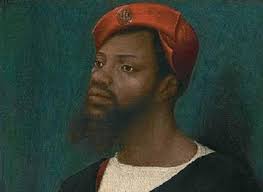
The Ghana Empire (c. 300–1100 AD) was a powerful West African kingdom located in present-day southeastern Mauritania, western Mali, and eastern Senegal. It was one of the earliest and most influential African empires, thriving due to its control over trans-Saharan trade routes.The most famous leader who ever ruled the Ghana Empire was Tunka Manin (who ruled about 1062 - 1076).
The rise of the Ghana Empire was influenced by several key factors, including geography, trade, leadership, and military strength. Below are the main factors that contributed to its rise:
1. Strategic Location
Ghana was located between the Sahara Desert and the savanna region, making it a natural hub for trade between North and West Africa.
Its position allowed it to control and tax trade routes, especially those carrying gold and salt.
2. Control of Trade
Ghana had vast gold reserves, making it one of the richest kingdoms in West Africa.
It controlled important trans-Saharan trade routes, where goods like gold, salt, ivory, and slaves were exchanged for textiles, horses, and weapons from North Africa.
The introduction of camels by Berber traders improved long-distance trade.
3. Strong and Centralized Government
The king (Ghana) had absolute power and controlled the trade and military.
The government efficiently collected taxes from traders, further enriching the empire.
Local chiefs and officials helped manage different regions, ensuring stability.
4. Powerful Military
Ghana maintained a well-trained army to protect its trade routes and enforce laws.
The military was used to expand territory and control surrounding tribes, increasing Ghana’s influence.
The use of iron weapons gave them a technological advantage over neighboring societies.
5. Agricultural Prosperity
The empire had fertile lands suitable for farming, providing enough food to sustain its growing population.
Surplus food allowed people to focus on other activities like trade, crafts, and administration.
6. Influence of Islam
Although Ghana’s rulers initially followed traditional African religions, interaction with Muslim traders introduced Islam.
The adoption of Arabic writing and administration techniques helped improve governance and trade relations with North Africa.
7. Tribute from Conquered Lands
Ghana expanded by conquering smaller states and making them pay tribute in gold, slaves, and other goods.
This system increased Ghana’s wealth and influence in West Africa.
The Ghana Empire had a lasting impact on West Africa, influencing trade, culture, governance, and regional power dynamics. Below are some of the major effects of the empire:
1. Economic Impact
- Expansion of Trade: Ghana controlled trans-Saharan trade routes, facilitating the exchange of gold, salt, ivory, and slaves with North African and Middle Eastern merchants.
- Introduction of Currency and Taxation: The empire imposed taxes on trade and developed a system for controlling the flow of gold, strengthening its economy.
- Growth of Markets and Cities: Trading centers like Koumbi Saleh became prosperous, attracting merchants from different parts of Africa and beyond.
2. Political and Administrative Influence
- Centralized Government: Ghana’s system of governance, where a powerful king ruled with local chiefs, influenced later West African empires like Mali and Songhai.
- Use of Military for Expansion: The empire set a precedent for using a strong military to control trade routes and expand territory.
3. Cultural and Religious Influence
- Spread of Islam: Ghana’s interactions with Muslim traders introduced Islam, which later became dominant in the region, influencing administration, education, and architecture.
- Cultural Exchange: The empire was a melting pot of different cultures, integrating African traditions with Islamic influences.
4. Social Impact
- Class System: Ghana’s society was structured, with the king and nobility at the top, followed by traders, artisans, farmers, and enslaved people.
- Growth of Urbanization: Major cities flourished due to trade and governance, leading to more organized societies.
5. Influence on Successor Kingdoms
- Ghana’s decline led to the rise of the Mali Empire, which inherited many of its trade networks and governance structures.
- Later empires, including Songhai, built on Ghana’s legacy of economic and political organization.
Conclusion
The Ghana Empire played a crucial role in shaping the history of West Africa. It established trade networks, influenced governance, spread Islam, and laid the foundation for future empires. Its legacy can still be seen in the region’s cultural and economic history today.


0 Comments: